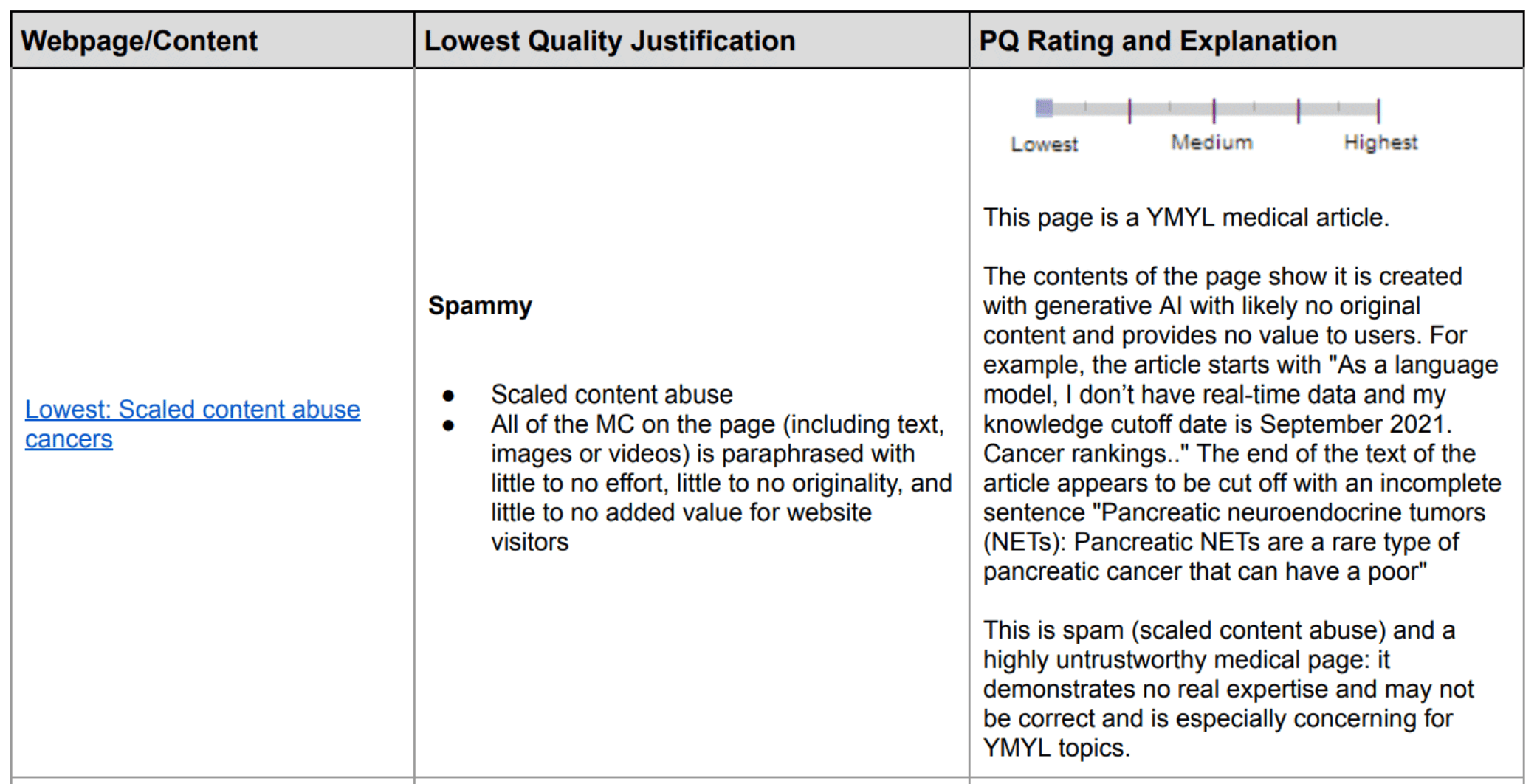Content Length: How to Win the SERPs with Less Content

The biggest road block in growing your organic traffic is scaling your content creation efforts. Thus some people resort to AI created content and programmatic SEO.
Also take into account that quality content does require a decent budget. And while the cost of content varies on many factors including industry, content length, author expertise, location (and rate), here's a high level average cost of writing content shared with me by my friend Bojan Maric from Workello.com:
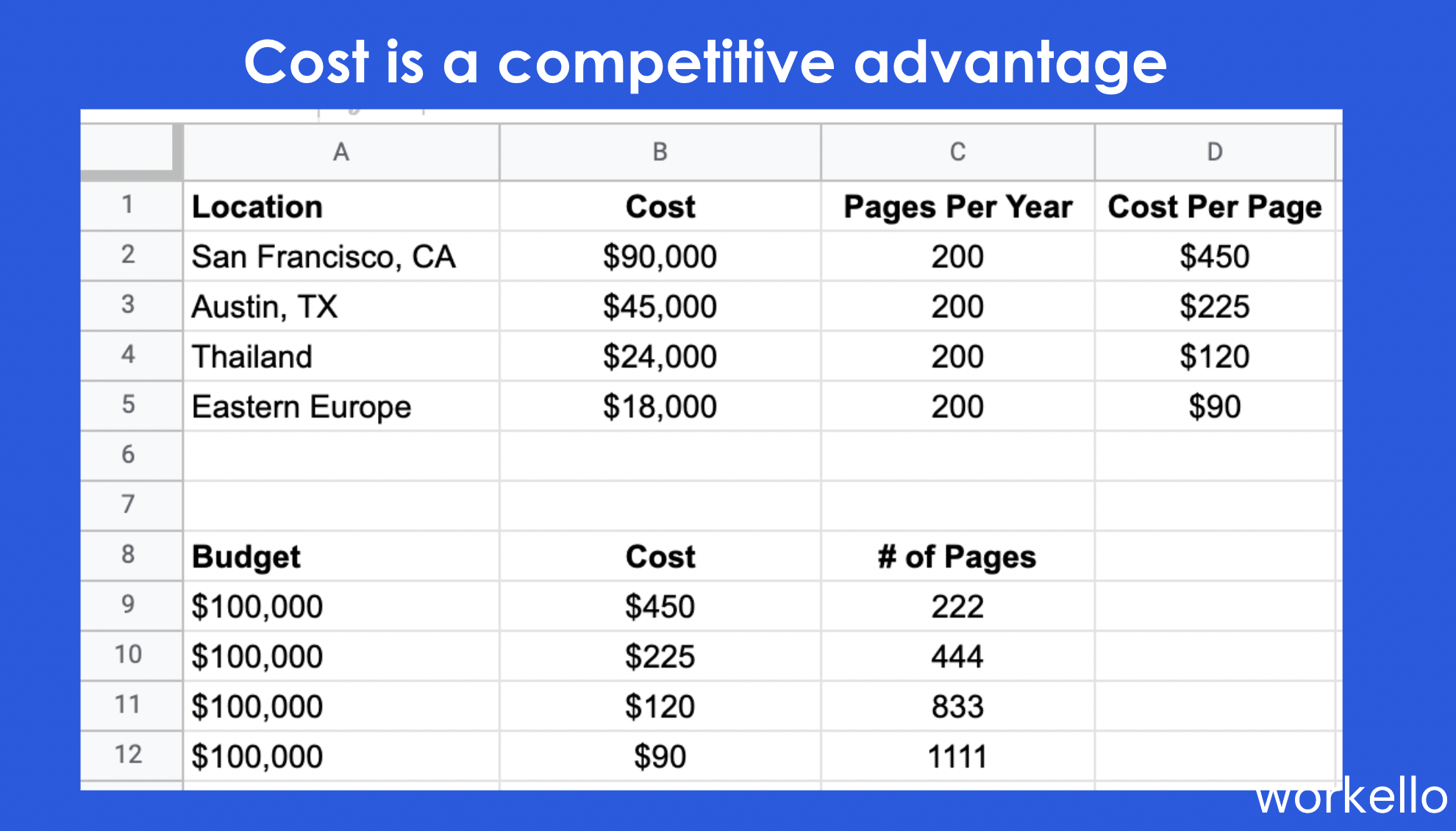
If you're looking for content opportunities that are less than 2k words, read on...
Well in this note, I'll show you how to find content opportunities that don't require a high word count.
Why would you want low word count topic opportunities?
In a perfect world you would be able to create as many content as needed, but that's not realistic. As SEO it's very often that we work with limited resources and need to find ways to make the best out of it. If you find yourself in that situation, having a process to find SEO content opportunities that do not require 2000+ words to rank for, is a great tactic to keep in your back pocket for whenever you need it. And while there are many tactics to find great content opportunities for businesses, there is very little that take into account the effort/resources needed to execute on them.
In addition, at the end of the day, you need to prioritize your content recommendations, and there are many ways you can do this, and this is one additional tactic to add to your playbook!
But word count is not a ranking factor
That is 100% correct. Word count on and of itself is not sufficient for you to rank. That said, you have very little chance to out rank pages that have more in-depth thorough content than your own.
Here's what John Muller tweeted recently about word count:

How to find valuable low word count content opportunities?
Let's say your website is about "Road Trip Tips" and that's the main keyword for your website.
Go to SEMrush, or any other SEO tool you prefer and analyze the keyword and find the websites that are ranking for this keyword but are also specialized in the topic (avoid things like general lifestyle website, etc...)
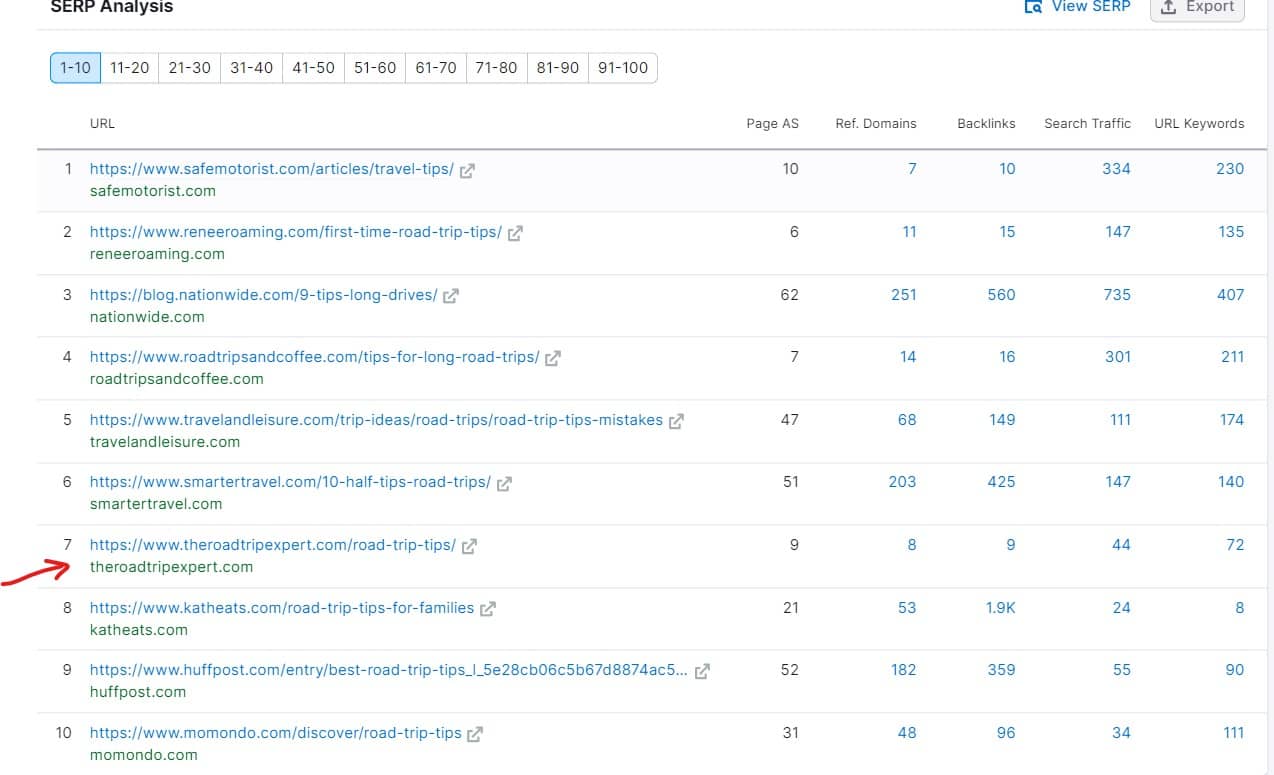
I decided to go with "theroadtripexpert.com"
Next, perform a crawl for this website using Screaming Frog (or any other tool that shows word count per URL). To speed up the crawl, you may go to configuration > Spider > Extraction and uncheck all fields except URL, title and word count.
Once you get the crawl data, do some cleanup, remove 404, 301 URLs, blog category pages, non-indexable URLs, etc.... Also remove all noise and unnecessary columns.
You should end up with a list that looks something like this:
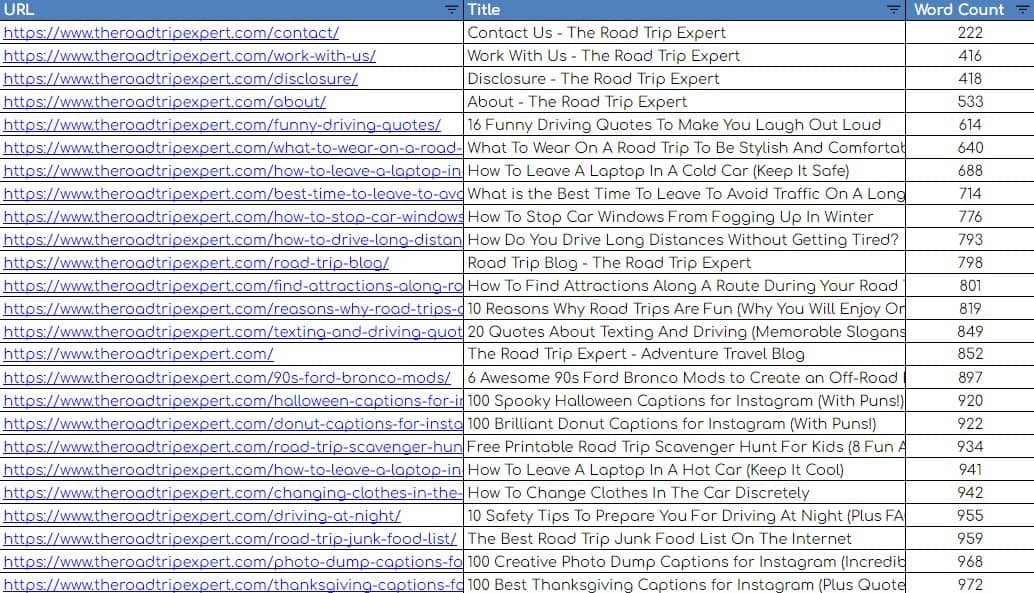
Now go back to SEMrush and pull all the keyword data for this website. Again cleanup the data and remove any unnecessary data except for Keyword, URL, Ranking and Search Vol. columns. Once you have this data, filter out any keywords ranking on the second page. You should end up with something like this:
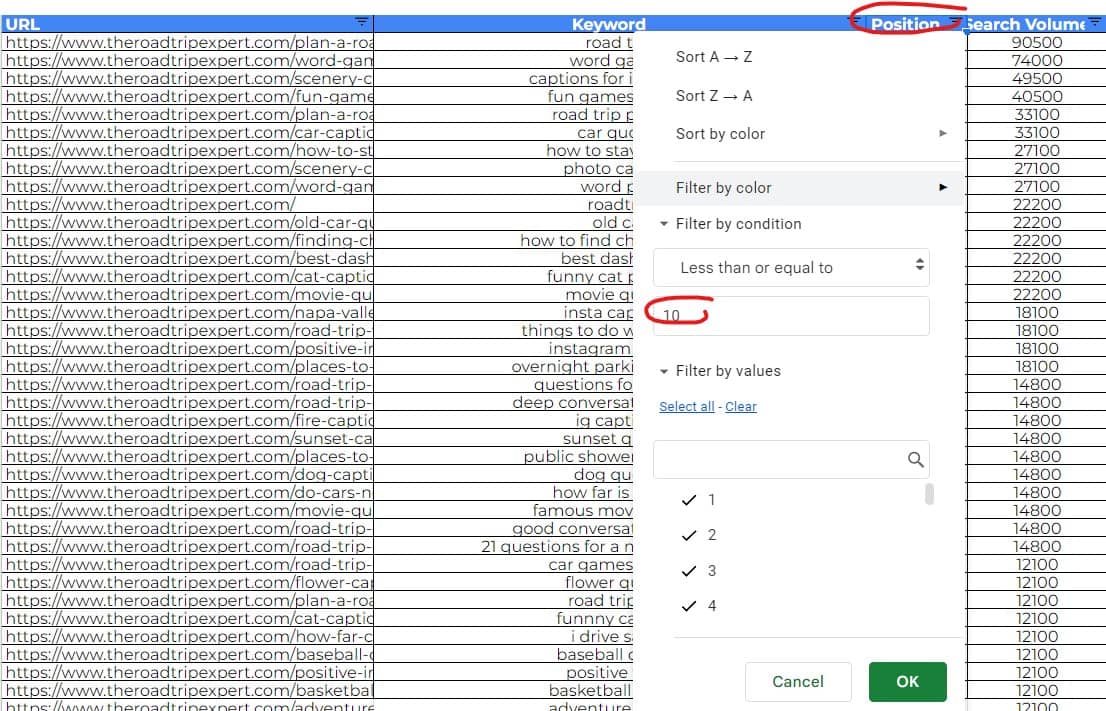
Once you've done that, use a VLOOKUP to add the word count information from the screaming frog crawl to each of the URLs in the SEMrush export, remove duplicate URLs and you'll end up with a table like this:

All you need to do from here, is to pick the topics with the lowest word count (like the top 5 rows in the above list), and create a piece of content that is a tiny bit in-depth and a little bit better!
Next, move to the next website, wash, rinse, repeat and you can gather a list of low effort content in terms of execution to work on!
If you found this information useful, please let me know!
Happy newsletter everyone :)
Affiliate links
The SEO Riddler Newsletter
Join the newsletter to receive the latest updates in your inbox.



